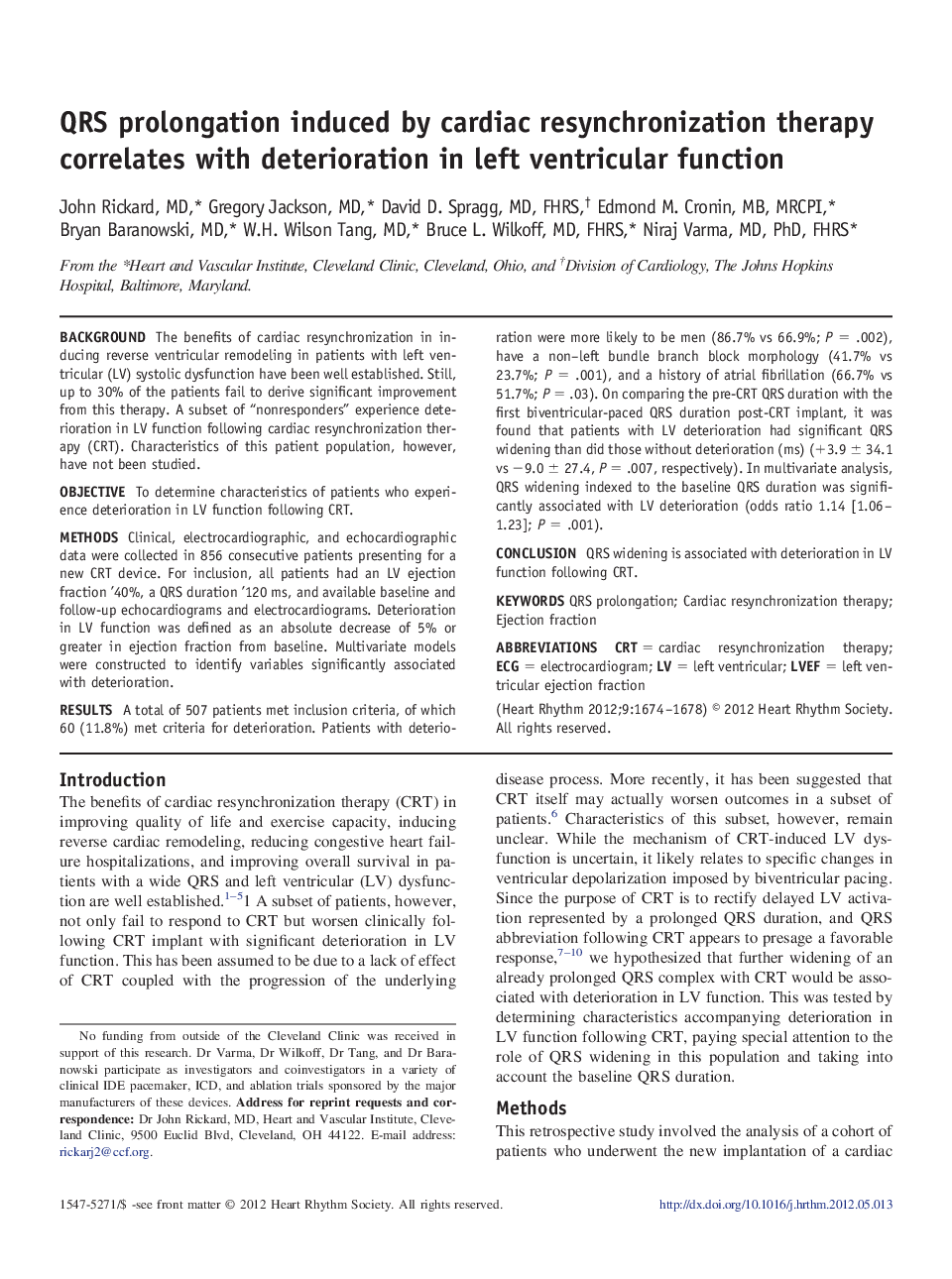| کد مقاله | کد نشریه | سال انتشار | مقاله انگلیسی | نسخه تمام متن |
|---|---|---|---|---|
| 2922614 | 1175850 | 2012 | 5 صفحه PDF | دانلود رایگان |

BackgroundThe benefits of cardiac resynchronization in inducing reverse ventricular remodeling in patients with left ventricular (LV) systolic dysfunction have been well established. Still, up to 30% of the patients fail to derive significant improvement from this therapy. A subset of “nonresponders” experience deterioration in LV function following cardiac resynchronization therapy (CRT). Characteristics of this patient population, however, have not been studied.ObjectiveTo determine characteristics of patients who experience deterioration in LV function following CRT.MethodsClinical, electrocardiographic, and echocardiographic data were collected in 856 consecutive patients presenting for a new CRT device. For inclusion, all patients had an LV ejection fraction '40%, a QRS duration '120 ms, and available baseline and follow-up echocardiograms and electrocardiograms. Deterioration in LV function was defined as an absolute decrease of 5% or greater in ejection fraction from baseline. Multivariate models were constructed to identify variables significantly associated with deterioration.ResultsA total of 507 patients met inclusion criteria, of which 60 (11.8%) met criteria for deterioration. Patients with deterioration were more likely to be men (86.7% vs 66.9%; P = .002), have a non–left bundle branch block morphology (41.7% vs 23.7%; P = .001), and a history of atrial fibrillation (66.7% vs 51.7%; P = .03). On comparing the pre-CRT QRS duration with the first biventricular-paced QRS duration post-CRT implant, it was found that patients with LV deterioration had significant QRS widening than did those without deterioration (ms) (+3.9 ± 34.1 vs −9.0 ± 27.4, P = .007, respectively). In multivariate analysis, QRS widening indexed to the baseline QRS duration was significantly associated with LV deterioration (odds ratio 1.14 [1.06–1.23]; P = .001).ConclusionQRS widening is associated with deterioration in LV function following CRT.
Journal: Heart Rhythm - Volume 9, Issue 10, October 2012, Pages 1674–1678